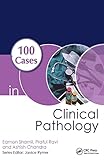100 cases in clinical pathology / Eamon Shamil, Praful Ravi, and Ashish Chandra.
Material type: TextSeries: 100 cases in clinical pathology. Eamon Shamil, Praful Ravi and Ashish Chandra.Description: xv. 357p.: ill.(som. col.).: 23cmISBN:
TextSeries: 100 cases in clinical pathology. Eamon Shamil, Praful Ravi and Ashish Chandra.Description: xv. 357p.: ill.(som. col.).: 23cmISBN: - 9781444179989
- 616/.047 23/eng/20220914
- RB37 .S45 2014
- QZ 18.2
| Item type | Current library | Call number | Status | Date due | Barcode | |
|---|---|---|---|---|---|---|
 Books
Books
|
KMTC:KISII CAMPUS General Stacks | RB37 .S45 2014 (Browse shelf(Opens below)) | Available | KSI/9999 |
Shelving location: General Stacks Close shelf browser (Hides shelf browser)

|

|

|

|

|

|

|
||
| RB37 .S45 2014 100 CASES IN CLINICAL PATHOLOGY | RB37 .S45 2014 100 CASES IN CLINICAL PATHOLOGY | RB37 .S45 2014 100 CASES IN CLINICAL PATHOLOGY | RB37 .S45 2014 100 cases in clinical pathology / | RB37 .S458 2014 100 Cases in Clinical Pathology: | RB37 .S66 1983 Choosing effective laboratory tests / | RB 37 .S66 2006 Textbook of medical laboratory technology/ |
Includes bibliographical references and index.
"100 Cases in Clinical Pathology and Laboratory Medicine presents 100 clinical scenarios commonly seen by medical students and junior doctors in the emergency department, outpatient clinic, operating theatre or in general practice. A succinct summary of the patient's history, examination and initial investigations is followed by questions on each case, with particular emphasis on the interpretation of the results and in which an understanding of the underlying clinical pathology is central to arriving at the correct diagnosis. The answer includes a detailed discussion on each topic, providing an essential revision aid as well as a practical guide for students and junior doctors, especially those preparing for undergraduate and postgraduate examinations. Making speedy and appropriate clinical decisions, and choosing the best course of action to take as a result, is one of the most important and challenging parts of training to become a doctor. Fully revised and updated for this second edition, these true-to-life cases will teach students and junior doctors to recognize important clinical conditions, to request the appropriate pathological investigation and correctly interpret those results, and, as a result, to develop their diagnostic and management skills"--
There are no comments on this title.

